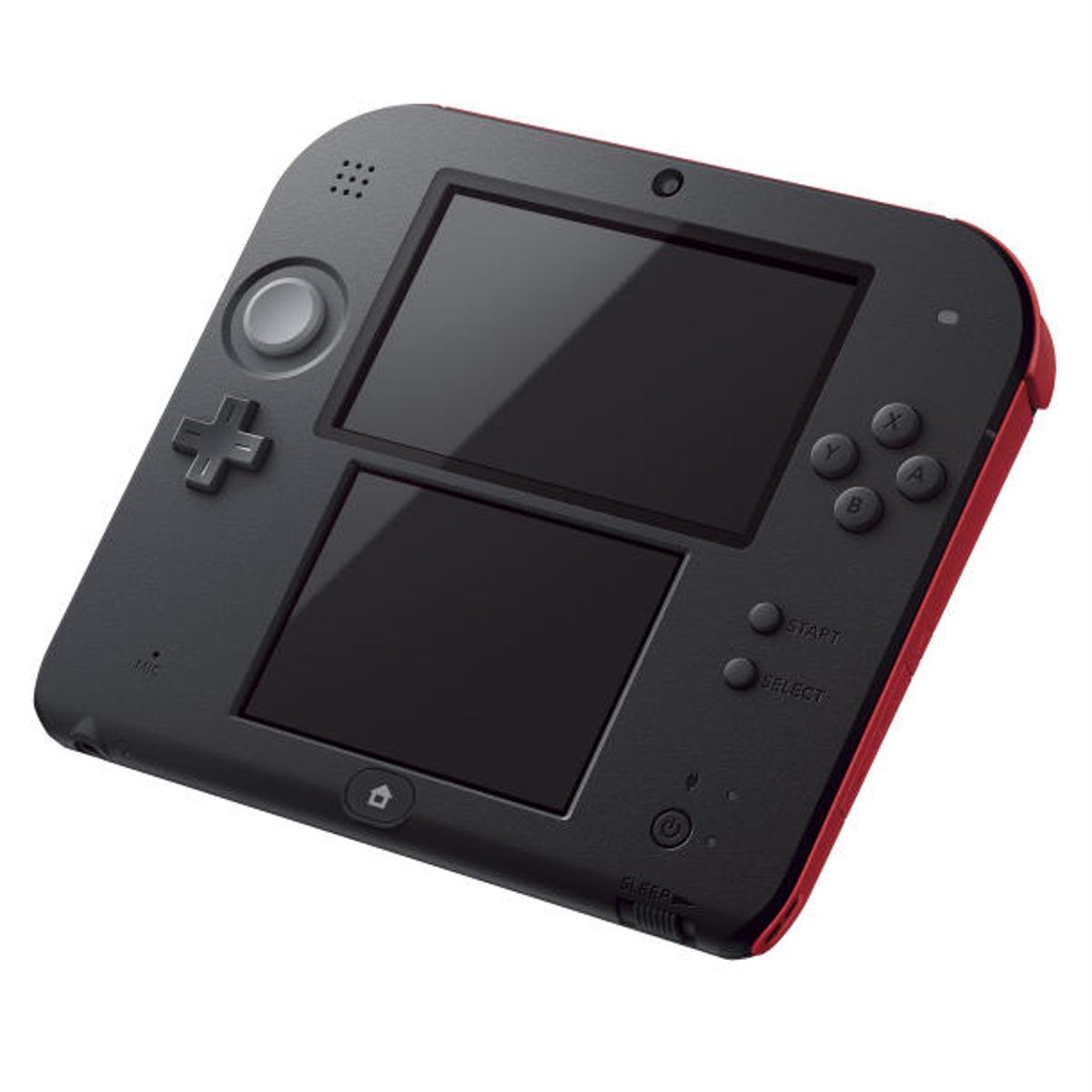Angling for dollars: 13 wedge-shaped gadgets (photos)
The Nintendo 2DS is just the latest in a series of gadgets to embrace a wedge shape. Here are a few others throughout the years.

Angling for dollars: 13 wedge-shaped gadgets (photos)
Nintendo dropped a bomb this week with the 2DS, a 2D version of its 3DS handheld aimed at kids and budget-seeking gamers. What caught headlines more than the $130 price tag (which is $40 less than the previous entry-level 3DS), was the shape -- a wedge.
Nintendo isn't the first company to adopt a wedge shape for its gadget, nor is it likely to be the last. Here's a quick primer in some of the many wedge-shaped gadgets over the years.
Amazon Kindle (first generation)
Amazon's first kindle was unlike any other e-ink reader, not only because it was attached to the largest online retailer, but also due to its peculiar shape.
The first Kindle looked mostly normal from the front, but turned on its side there was a stark wedge shape. That gave Amazon room for ports and buttons, with a taper that narrowed to where the buttons were. Amazon ditched the design feature in all future models, going for rounded corners instead.
Sony Vaio X505
Sony's Vaio X505 came out in 2004, and had some sizzling specs for its size. It had a 10.4-inch display, and weighed 1.85 pounds. It was also jammed full of ports. All this did not come cheap, with a price of around $3,000.
Apple's MacBook Air
Since 2010, Apple's MacBook Air has featured a striking wedge design that allowed room for ports on the sides near the hinge, and little else as it trimmed down. The design went on to become mimicked by several other computer makers, and Apple is still using it in its 2013 models (pictured above).
Gigabyte X11 Ultrabook
Last year's Gigabyte's X11 Ultrabook impressed with beefy specs, light weight, and use of carbon fiber in its frame. CNET's main quibbles were the space bar and trackpad, the latter of which could take some time to become responsive after waking up from sleep.
HP Envy 15
Hewlett-Packard's 15-inch Envy model looks quite a bit like Apple's MacBook Air model, including the wedge shape and color scheme. HP debuted it back in March.
Microsoft's Wedge Mouse
Last year, Microsoft offered up a rather unique wireless mouse, with its wedge touch design. It eschews much of the rest of the mouse in favor of where your fingers click and scroll. You could also theoretically use it as a door stop, though we didn't try.
Logitech Ultrathin Touch Mouse
Is it a good thing for mice to be "ultrathin?" Logitech thinks so. The very same day Nintendo took the wraps off the 2DS, Logitech announced this slim mouse, which goes on sale in September for $69.99.
Logitech Touchpad T650
Logitech's Touchpad T650 is a standalone multitouch trackpad that can be used with Windows 8. It's got a built-in rechargeable battery, and -- you guessed it -- a wedge shape.
Sony Xperia Tablet S
Sony's 2011 Android tablet sported a wedge shape and came in about the same price as Apple's iPad. Sony's design was rather unique in that it almost appeared as something that had been folded over itself. Later models ditched the wedge in favor of rounded corners.
Lenovo ThinkPad X1 notebook
No, this notebook didn't just pass out from malnutrition. Lenovo's just showing off how far back the screen on its ThinkPad X1 can go. Like many others on this list, the X1 puts the ports on the thicker part of the wedge, before tapering off to a super thin front.
Commodore VIC Slim (2011)
Commodore USA's VIC Slim line put the computer in the keyboard. This is the one and only standalone keyboard we're including in this list (since many are wedges), but this one is rather extreme in its wedgeiness and unusual in its functionality.
Cambridge SoundWorks Oontz Edge speakers
Cambridge SoundWorks' onomonopiadic-sounding Oontz Edge are a set of $40 mini Bluetooth speakers that are about as wedge-like as they come. Also like Nintendo's 2DS, they come in both a blue and red color.
Sharper Image iPulse iPod dock (2007)
Rounding out our list is this monstrosity relic from the past, the Sharper Image iPulse. In the heady days of iPod docks, this wedge-shaped gadget showed that adding LED lights to spice up the experience of music was apparently more important than adding any control buttons, or letting people use it without being plugged into a wall.

